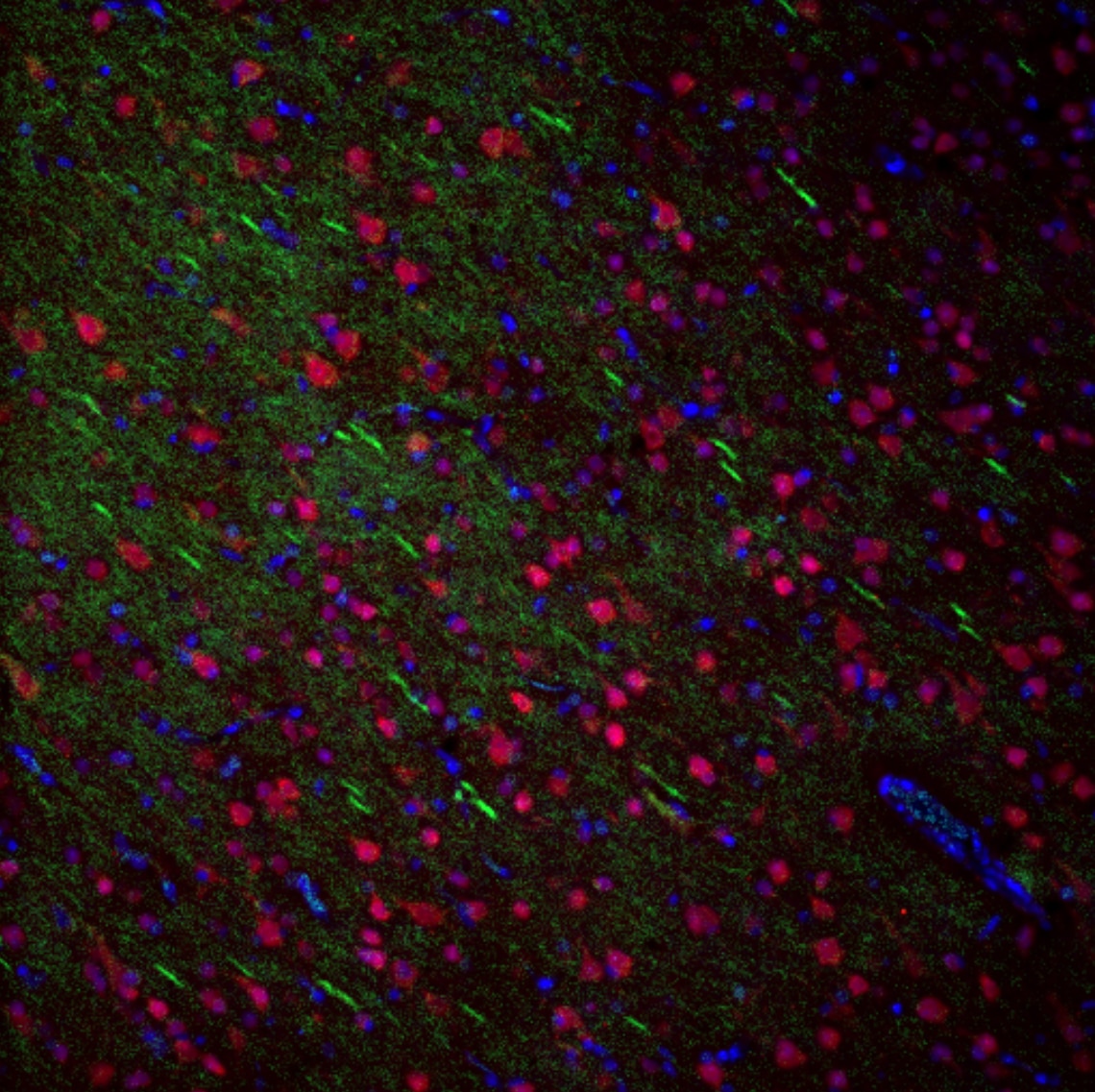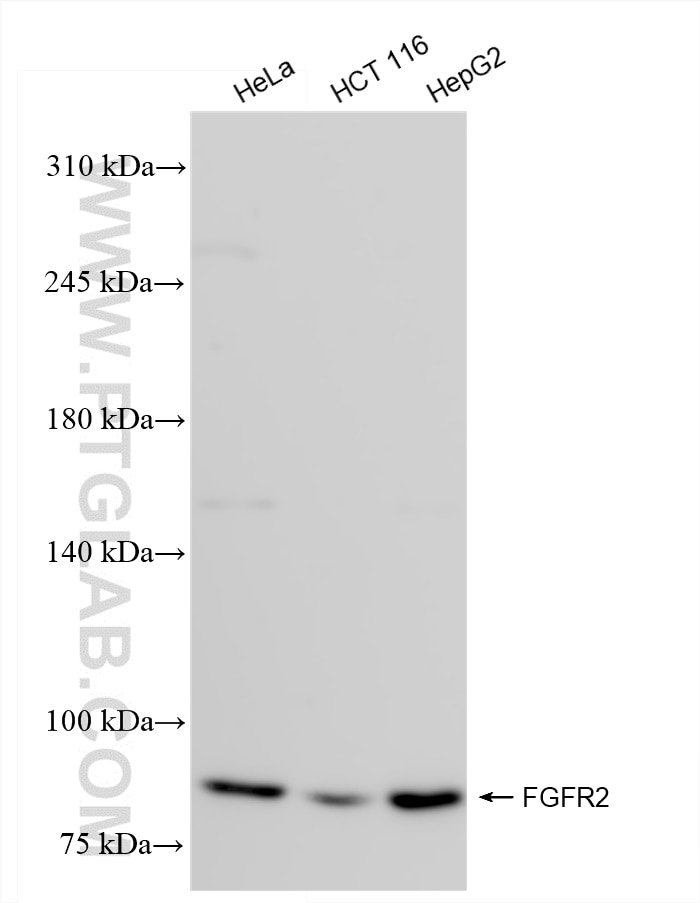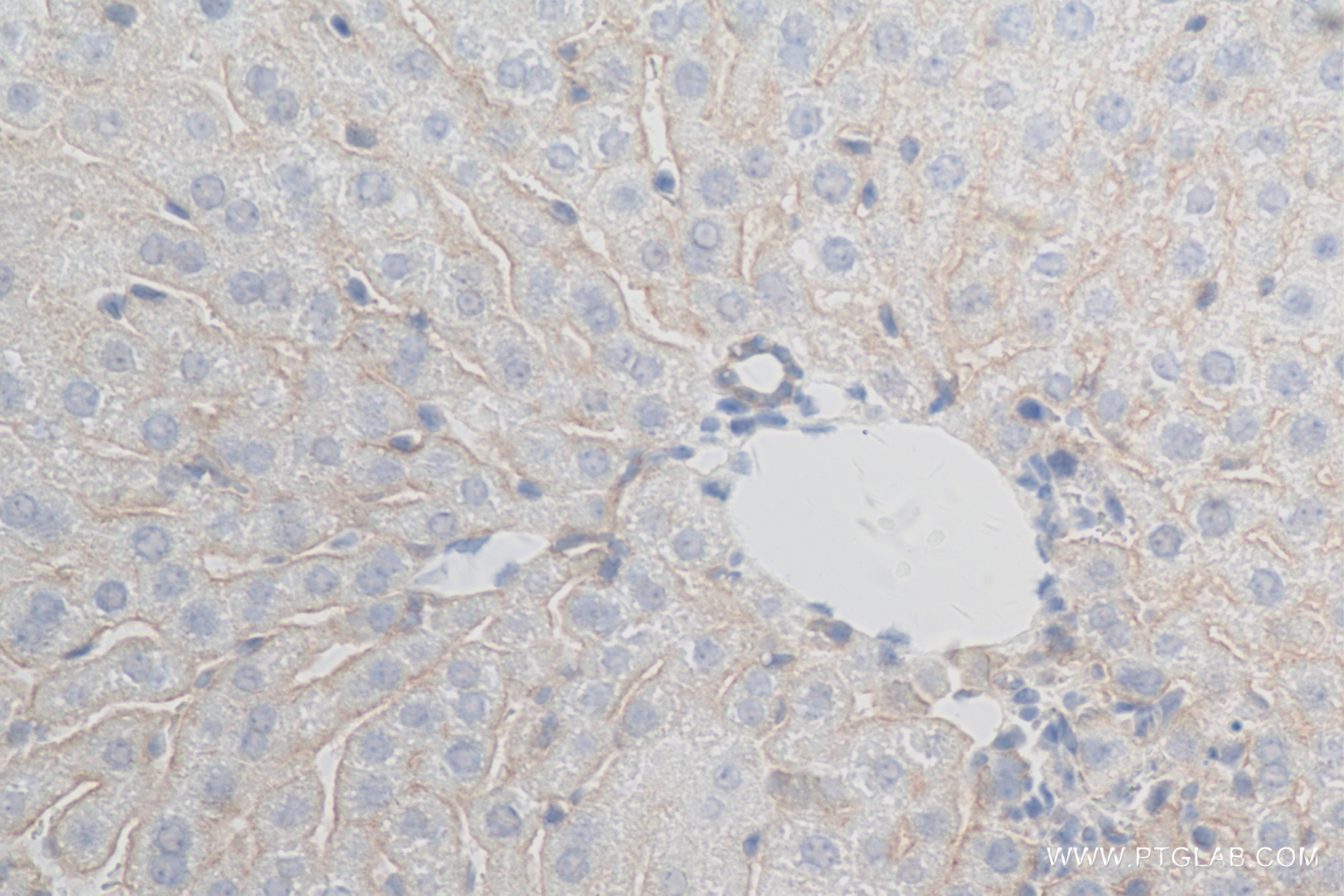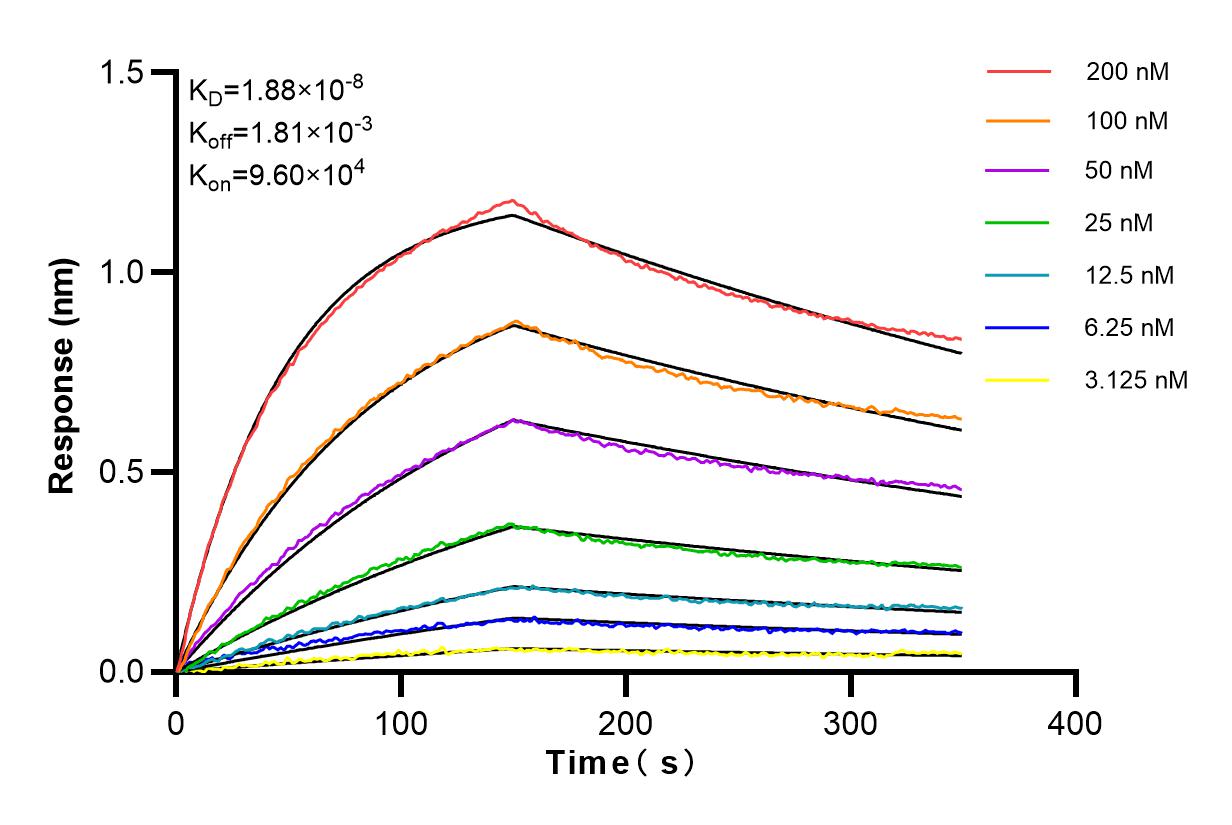Anticorps Recombinant de lapin anti-FGFR2/CD332
FGFR2/CD332 Recombinant Antibody for WB, IHC, ELISA
Hôte / Isotype
Lapin / IgG
Réactivité testée
Humain, souris
Applications
WB, IHC, ELISA
Conjugaison
Non conjugué
CloneNo.
241383G9
N° de cat : 84205-4-RR
Synonymes
Galerie de données de validation
Applications testées
| Résultats positifs en WB | cellules HeLa, cellules HCT 116, cellules HepG2 |
| Résultats positifs en IHC | tissu hépatique de souris, il est suggéré de démasquer l'antigène avec un tampon de TE buffer pH 9.0; (*) À défaut, 'le démasquage de l'antigène peut être 'effectué avec un tampon citrate pH 6,0. |
Dilution recommandée
| Application | Dilution |
|---|---|
| Western Blot (WB) | WB : 1:5000-1:50000 |
| Immunohistochimie (IHC) | IHC : 1:50-1:500 |
| It is recommended that this reagent should be titrated in each testing system to obtain optimal results. | |
| Sample-dependent, check data in validation data gallery | |
Informations sur le produit
84205-4-RR cible FGFR2/CD332 dans les applications de WB, IHC, ELISA et montre une réactivité avec des échantillons Humain, souris
| Réactivité | Humain, souris |
| Hôte / Isotype | Lapin / IgG |
| Clonalité | Recombinant |
| Type | Anticorps |
| Immunogène | FGFR2/CD332 Protéine recombinante Eg1265 |
| Nom complet | fibroblast growth factor receptor 2 |
| Masse moléculaire calculée | 92kd |
| Poids moléculaire observé | 85 kDa |
| Numéro d’acquisition GenBank | NM_000141.4 |
| Symbole du gène | FGFR2 |
| Identification du gène (NCBI) | 2263 |
| Conjugaison | Non conjugué |
| Forme | Liquide |
| Méthode de purification | Purification par protéine A |
| Tampon de stockage | PBS with 0.02% sodium azide and 50% glycerol |
| Conditions de stockage | Stocker à -20°C. Stable pendant un an après l'expédition. L'aliquotage n'est pas nécessaire pour le stockage à -20oC Les 20ul contiennent 0,1% de BSA. |
Informations générales
FGFR2 (Fibroblast growth factor receptor 2) is a tyrosine-protein kinase that acts as a cell-surface receptor for fibroblast growth factors and plays an essential role in the regulation of cell proliferation, differentiation, migration, and apoptosis. Ligand binding leads to the activation of several signaling pathways, such as RAS, MAPK1/ERK2, MAPK3/ERK1, and the MAP Kinase signaling pathway, as well as the AKT1 signaling pathway. Mutations in the gene of FGFR2 are associated with Crouzon syndrome, Pfeiffer syndrome, Craniosynostosis, Apert syndrome, Jackson-Weiss syndrome, Beare-Stevenson cutis gyrata syndrome, Saethre-Chotzen syndrome, and syndromic craniosynostosis.
Protocole
| Product Specific Protocols | |
|---|---|
| WB protocol for FGFR2/CD332 antibody 84205-4-RR | Download protocol |
| IHC protocol for FGFR2/CD332 antibody 84205-4-RR | Download protocol |
| Standard Protocols | |
|---|---|
| Click here to view our Standard Protocols |
Avis
The reviews below have been submitted by verified Proteintech customers who received an incentive for providing their feedback.
FH Reyes (Verified Customer) (09-30-2025) | FGFR2 (in green) worked well marking the axons of the neurons in human FFPE tissue
 |





